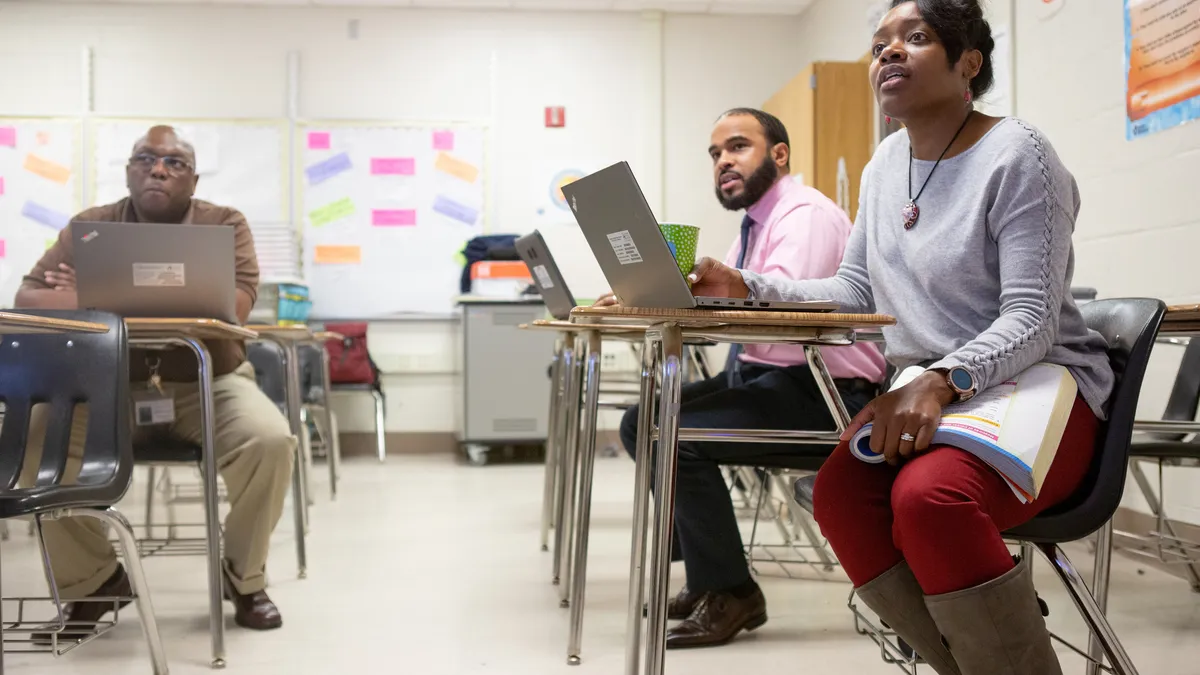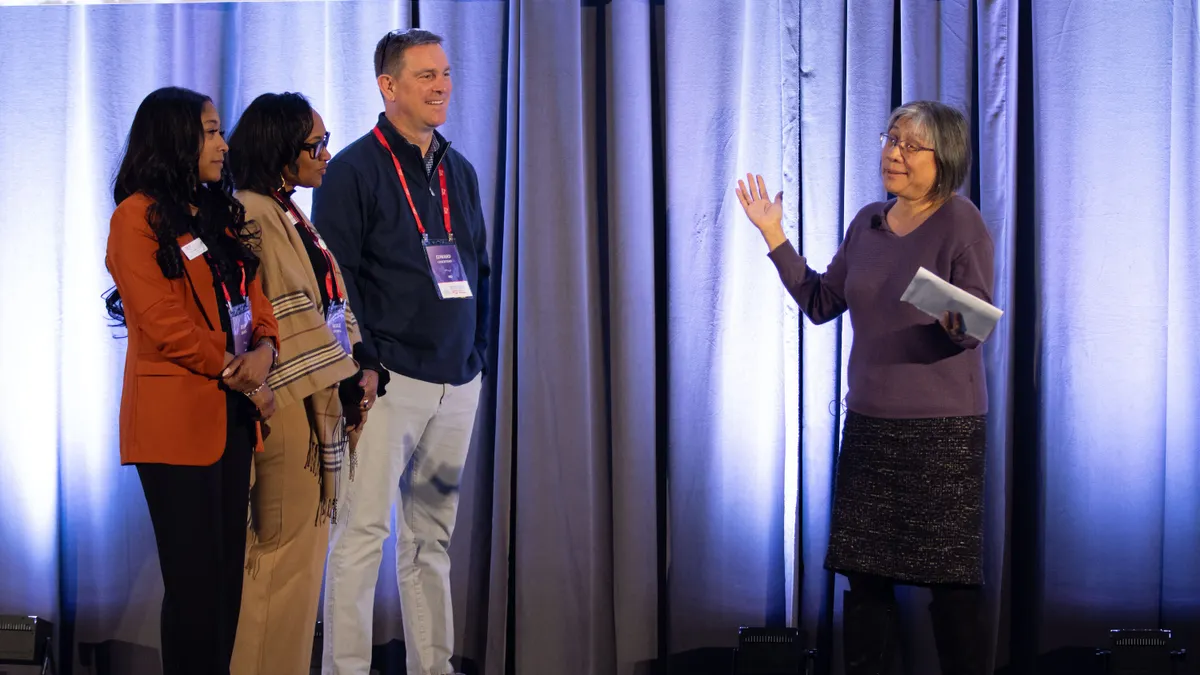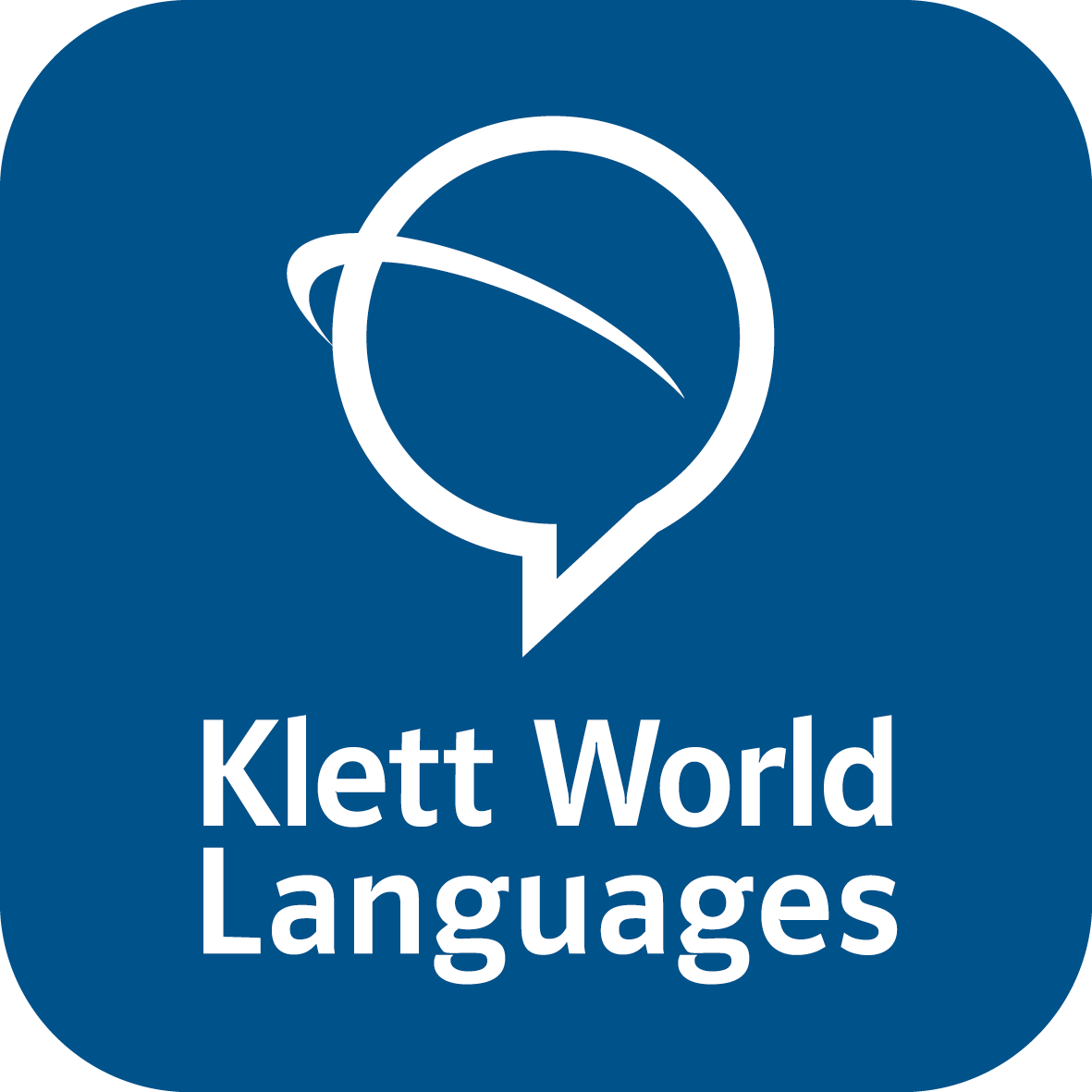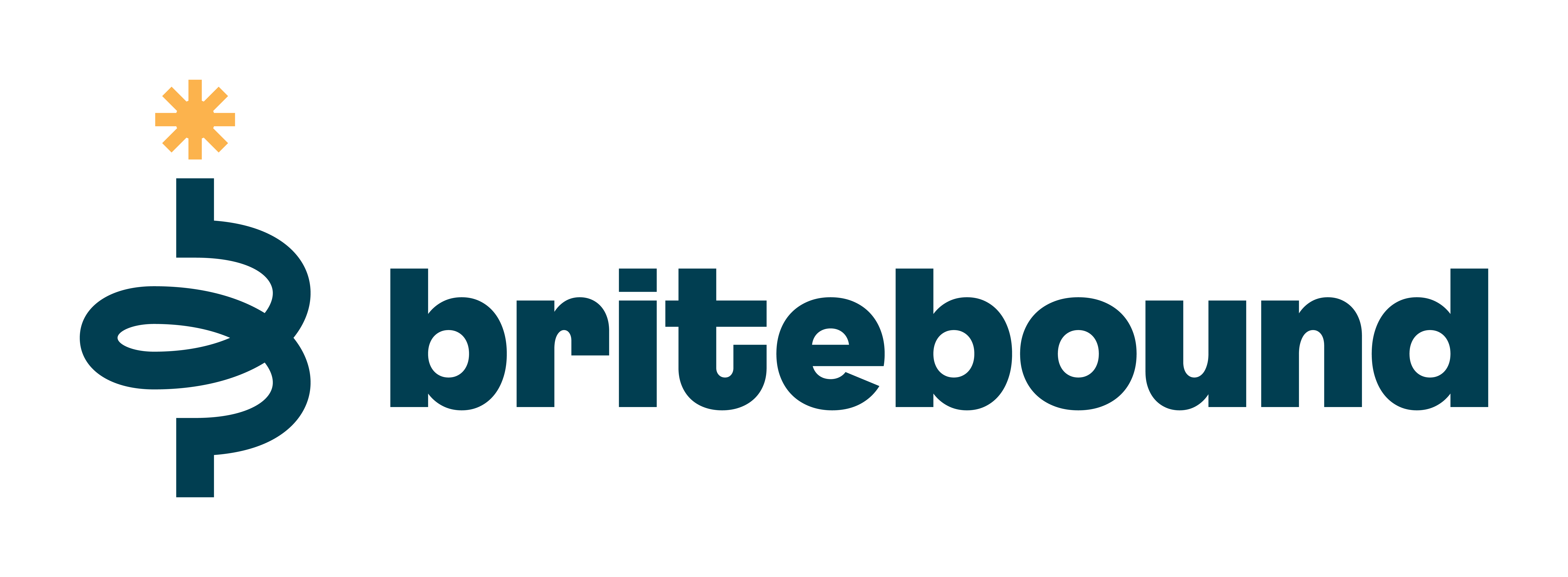ARLINGTON, Va. — Innovative solutions to solving the special educator shortage requires lots of collaboration, planning, flexibility and patience, said speakers at the U.S. Department of Education's Office of Special Education Programs' annual conference this week.
"These things don't just materialize overnight. They require a lot of engagement, a lot of work, a lot of effort," said Daniel Maggin, associate dean of research, special education chair and professor of special education at the University of Illinois Chicago, during a session Wednesday.
While the task to fill special education teaching vacancies is substantial, it's essential for supporting students with disabilities who need individualized academic and developmental supports, Maggin said.
District and state education systems should partner with universities to "do the impossible, which is to develop more teachers, and develop more teachers who are of high quality," Maggin said.
According to the Learning Policy Institute, 45 states reported special education teacher shortages in 2024-25 based on data reported to the Education Department. An LPI analysis shows that 48 states and the District of Columbia had 365,967 teachers who were not fully certified for their positions.
Teacher preparation enrollment data is also discouraging for general and special education. Slightly more than half of states — 27 — saw teacher preparation program enrollment declines of 5% or more between 2016-17 and 2020-21, according to LPI.
Severe special educator teacher shortages in Illinois led the University of Illinois Chicago to develop two apprenticeship pathways for people to earn an educator license with a special education endorsement, said Maggin.
The first is for professionals — ideally with a bachelors degree — who want to earn their educator license, and the second, which is still in development, will be for those seeking both a degree and license. Developers hope to include high school students interested in the teaching profession in the second pathway.
Under both pathways, participants will receive coursework, fieldwork, student teaching experiences and mentoring specific to special education, said Chrissy Brown, a clinical assistant professor of special education at the University of Chicago Illinois.
Aspiring teachers can earn money by learning through on the job training, Brown said.
Funding teacher preparation programs
Increasing access to early intervention, special education teaching and related services preparation programs is a goal of The DREAM Center, an OSEP-funded technical assistance center. The center — which stands for Delivering Resources, Education, and Access to Minority serving institutions — supports historically black colleges and universities, tribally controlled colleges and universities, and other minority serving institutions in seeking grants to help prepare special education professionals.
The center is a collaboration between Florida International University, Bowie State University and United Tribes Technical College.
Chauntea Cummings, assistant director of the center, said during a Tuesday session that there's a need to build the special education teacher pipeline from underrepresented communities. Nearly 80% of special education teachers in 2022 were White, despite an overall student population that is currently about 53% non-White, Cummings said.
Minority serving institutions, while representing 21% of all educator preparation providers, struggle with developing and submitting grants to support educator preparation programs, she said. The challenges include lack of support for grant writing and lack of resources for course design and training for faculty.
"We'd love to have many, many scholars, but we have to do what to get them there? Support them financially," Cummings said. To best assist the colleges, the center has a tiered system of supports that includes intensive individualized assistance for institutions in need, she said.
Maria Silva, project coordinator at the center, said at the same session that grant assistance for minority serving institutions involves mentorship from those who have experience in applying, securing and implementing grants.
Mentors, "still have that passion, and they want to share that passion with other faculty members to continue this" and expand minority serving institutions' financial opportunities, Silva said.


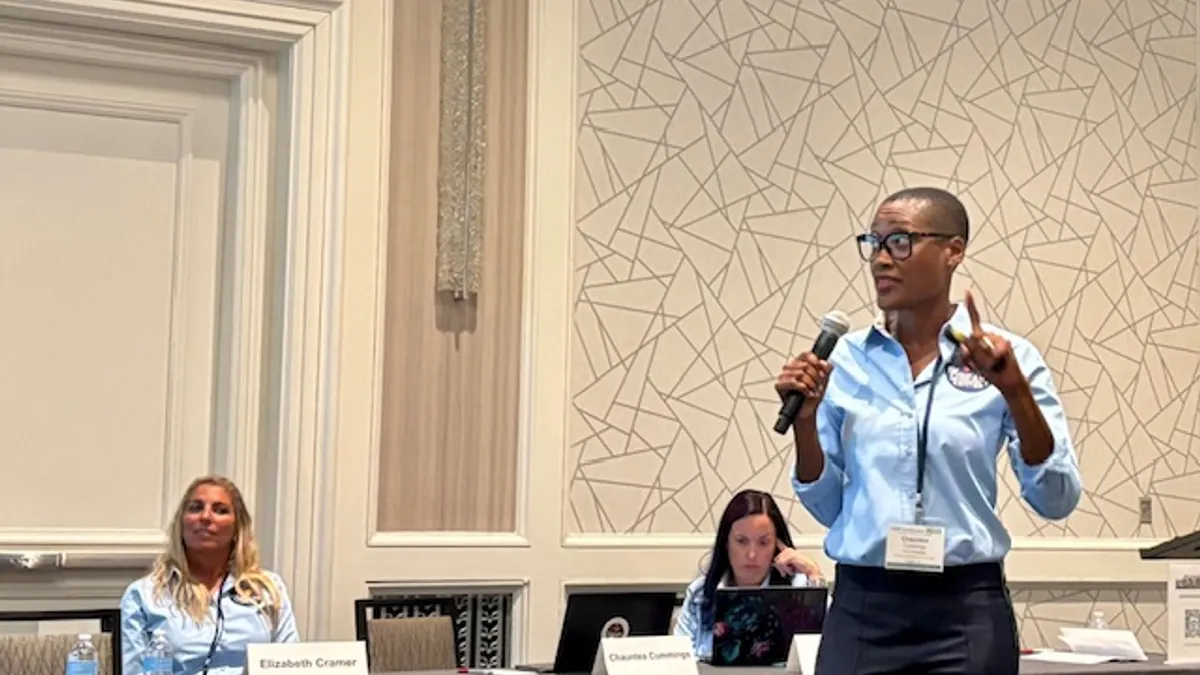



 Dive Awards
Dive Awards
